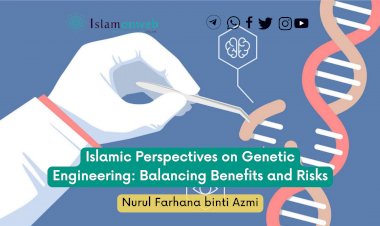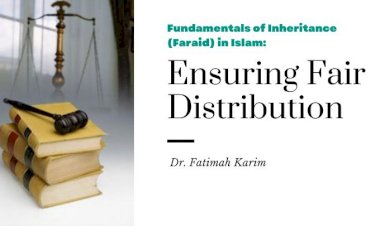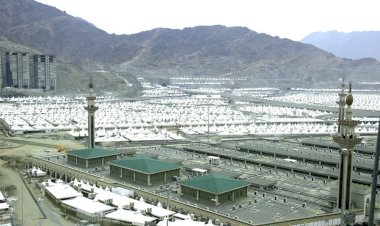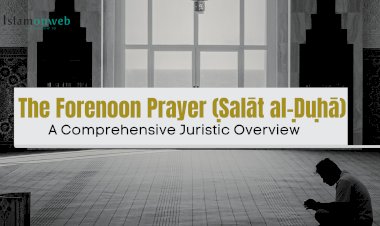Maqāṣid al-Sharīʿiah and Waqf Governance (Part Two)
Maqāṣid al-Sharīʿiah and Waqf Governance
Maqāṣid al-Sharīʿiah subsumes all the significant themes of Islam, and it is, therefore, an infrastructure for every Islamic functioning. In the landscape of Sharīʿiah-based governance, Maqāṣid is the configuration. The ʿIbādāt (worship) and Muʿāmalāt (transactions) in Islamic jurisprudence are not only ordained as a form of prayer and obedience to the Almighty Allah, but it is also meant to achieve specific higher objectives in worldly life. Therefore, any governance that is based on the Maqāṣid al-Sharīʿiah principles will consequently pay the path to comprehensive excellence from an Islamic perspective. That is the motivation to bring the waqf governance in light of Maqāṣid principles.
The central message of divine revelation is the full realization of the oneness of God and the exclusive worship of the One God, Allah; from which realization of justice and integrity in this world is derived; as Allah says:
لَقَد أَرسَلنا رُسُلَنا بِالبَيِّناتِ وَأَنزَلنا مَعَهُمُ الكِتابَ وَالميزانَ لِيَقومَ النّاسُ بِالقِسطِ ۖ وَأَنزَلنَا الحَديدَ فيهِ بَأسٌ شَديدٌ وَمَنافِعُ لِلنّاسِ
وَلِيَعلَمَ اللَّهُ مَن يَنصُرُهُ وَرُسُلَهُ بِالغَيبِ ۚ إِنَّ اللَّهَ قَوِيٌّ عَزيزٌ.
We have already sent Our messengers with clear evidence and sent down with them the Scripture and the balance that the people may maintain [their affairs] in justice. And We sent down iron, wherein is great military might and benefits for the people, and so that Allah may make evident those who support Him and His messengers unseen. Indeed, Allah is Powerful and Exalted in Might. (al-Quran, 57: 25).
Abū Ḥāmid al-Ghazālī (d. circa 1111) summarised the core message of the Sharīʿah as the protection and promotion of five fundaments, namely faith, life, mind, posterity and wealth. [1] Ibn Qayyim al-Jawziyyah (d. circa 1350) elucidated the Sharīʿah as:
Sharīʿah is based on wisdom and achieving people’s welfare in this life and the afterlife. Sharīʿah is all about justice, mercy, wisdom, and good. Thus, any ruling that replaces justice with injustice, mercy with its opposite, common with mischief, or wisdom with nonsense is a ruling that does not belong to the Sharīʿah, even if it is claimed to be so according to some interpretation.[2]
Maqāṣid refers to “fulfilment and protection of the interests, “removal and elimination of harm’, reduction of hardships and their eradication’, “establishment of safety and justice’, “facilitation’,” moderation’, ‘and kindness’ are the other core themes of Maqāṣid.[3] Ibn ʿĀshur defined it as “modalities intended by the Sharīʿah for people to achieve beneficial purposes or to save the interests of the public in their specific actions“.[4] To sum up, Maqāṣid al-Sharīʿiah refers to the “attainment of the welfare of people and elimination of evils’ (jalb al-maṣlaḥah wa dar’ al-mafsadah). How can the Waqf be made, administered, distributed, and governed to achieve the abovementioned goals is part of the discussion in the maqāṣidic governance of Waqf.
The philosophy of Islamic law in social interactions and interpersonal relationships is based on benefitting both parties involved. For example, the benefit of Waqf is twofold, as wāqif is guaranteed a source of perpetual reward in the hereafter, and the beneficiary (mawqūf alayhi) is being helped meet his socio-economic needs. Wāqif’s good intention is an essential factor in the acceptance of Waqf, as per the hadith, "The deeds are considered by the intentions, and a person will get the reward according to his intention” (Riyāḍ al-Ṣāliḥīn, 1). The intention is to please Allah, as an essential duty of a committed and obedient servant in his mission to accomplish the task of khilāfah on the earth. From a broader and social perspective, Waqf can inculcate the culture of muwāsāt (mutual help), mawaddah (social love) and ukhuwwah (brotherhood).
The relationship between Waqf and Maqāṣid is reciprocal. So, the discussion also needs to be handled in that aspect. Maqāṣid can be a framework for the efficient functioning of Waqf, whereas Waqf has, by default, the potential to aid in the actualization of the Maqāṣid. To put it differently, in the light of Maqāṣid al-Sharīʿiah, a clear-cut and pragmatic framework, which is in line with Sharīʿiah standards and demands of contemporary times, can be designed. Maqāṣid can draw a roadmap that can be streamlined to move on for wāqif, philanthropists, mutawallīs, local management and state administrations. On the other hand, the waqf property and assets can be a huge source of help for fulfilling some maqāṣidic goals, which are at the same time efficient to please Allah and meet the needs of people.
Maqāṣid al-Sharīʿiah is perceived as the philosophy of Islamic law, and therefore it has to be also governing outline for the usage of Waqf. Hence, the Waqf needs to be used for mawqūf ʿalayhi in terms of protecting their dīn (Islamic faith), life, family, mind and wealth. Such protection is undeniably, among others, related to certain economic objectives. The abovementioned five fundaments are vital for achieving a prosperous life in this world and success in the hereafter. Islamic faith is not meant for achieving some rituals and religious practices, as some interpret. Rather, it is a way of living and worldview which inculcates in the people the nature of civilized and disciplined life. Likewise, protection of health refers to aspects of holistic healthcare which include the protection of physical fitness, psychological well-being and humanness of every member of the society. Protection of family is related to leading the kith and kin to a righteous living and having a sound and healthy sexual life. Protection of mind is all about preserving, honouring and improving the intellectual aspects of a person’s life. Protection of wealth is about a self-sufficient society that gathers and distributes the wealth as per the guidance of Allah. Protecting the five fundaments contributes to improvements that ultimately reflect economic development. In this way, Waqf can be instrumental in promoting sustainable and inclusive growth.
In the context of Maqāṣid, the areas of waqf use can be generally categorized as values, humanity, nature and knowledge. Here, the matter can be explained as faith and religious enrichment. Humanity refers to life, health, and progeny. Nature means all types of resources and wealth and extends to the environment and ecosystem. The knowledge points to the means for the protection of sound intellect. The kind of waqf governance that protects and upholds the abovementioned factors can be called Maqāṣidic governance of Waqf.
Diligent monitoring, continuous maintenance and adequate management are vital factors in waqf management. Continuity and development of the usufruct need to be assured for the benefit of wāqif as well as mawqūf ʿalayhi. Waqf is the source of perpetual divine reward, which depends on the use and benefit of the Waqf. The duty of taking this amānah i.e., protecting and maintaining the regular use and character of charity, needs to be moved from generation to next generation. Mahall[5] committees, mutawallīs and official departments in particular and Muslim ummah in general, are accountable.
In the context of Waqf, maqāṣidic governance refers to the protection and administration of waqf properties and distribution of waqf income to the deserving people, fulfilling the objectives of Sharīʿiah and the goals of Waqf. Here, the goals of waqf are specific, and the objectives of Sharīʿiah are general, i.e., the latter includes the former. However, they are cited separately to highlight the reciprocal relationship in achieving their goals.
Being the ultimate goals and all-encompassing wisdom behind the Islamic teachings, the principles of Maqāṣid Sharīʿiah always remain relevant, updated, inclusive and applicable across the ages and places. Consequently, maqāṣidic governance inevitably allocates added importance to the aspect of meeting the needs of the time it operates. Maṣlahah (welfare) is the nutshell of Sharīʿiah’s message. Achievement of benefit and repulsion of harm is the definition of maṣlahah. Therefore, the maqāṣidic governance of Waqf refers to attaining good benefits and eliminating all sorts of evils from the waqf institution.
Endnotes:
[1] Abū Ḥāmid al-Ghazālī, al-Mustaṣfā fī ʿIlm al-Uṣūl, (Beirut: Dār al-Kutub al-Ilmiyyah, 1413H), 1: 174.
[2] Shams al-DĪn ibn al-Qayyim, Iʿlām al-Muwaqqiʿīn ʿan Rabb al-ʿĀlamīn, ed. Taha Abd al-Ra’ūf (Beirut: Dār al-Jīl, 1973), vol 3, p3. (Translation retrieved from the book, Jasser Auda, Maqasid al-Sharīʿah as Philosophy of Islamic Law; A Systems Approach, (London, Washington: IIIT, 2008), xxii.
[3] Bouhedda Ghalia, Muhammad Amanullah, Luqman Zakariyah and Sayyed Mohamed Muhsin, “Medical Ethics in the Light of Maqāṣid Al-Sharīʿah: A Case Study of Medical Confidentiality”, Intellectual Discourse, 26:1 (2018) 133–160.
[4] Muhammad al-Tahir ibn Ashur, Treatise on Maqasid al-Shariʿah, Original Edition Translated from the Arabic and Annotated by Mohamed El-Tahir El-MesawIMesawi, (Herndon, USA: International Institute of Islamic Thought, 2013)306-307.
[5] Mahall means a social format of Muslims of particular localities by dividing the areas which include a Jumuʿah Mosque and its committee. The committee leads the majority of collective rituals which are supposed to be done in a place where Muslims live and organize a wide variety of Islamic programs. In Kerala, almost all places where Muslims live have a separate mahall system and its committees. Sayyed Muhsin, Multiple Roles of Mufti: A Kerala Model, https://twocircles.net/2020jun10/437420.html
About Author: Sayyed Mohamed Muhsin is an assistant professor of Islamic jurisprudence at International Islamic University (IIUM), Kuala Lumpur. He also serves as Editor-in-Chief of Islamonweb-English.
(This article is part of a research work which was originally published on AWQAF Journal, 22 (42). pp. 13-44. ISSN 1609-4662, published from Kuwait).
Disclaimer
The views expressed in this article are the author’s own and do not necessarily mirror Islamonweb’s editorial stance.
























Leave A Comment